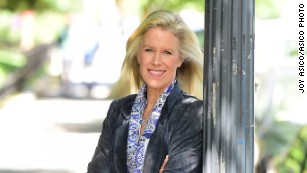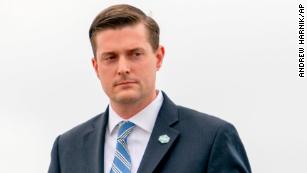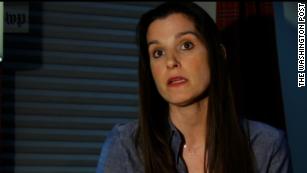What I don't think is considered by most people here is that people who choose to be soldiers are a different breed to begin with. It's sort of like they are jocks (only jocks trained to kill efficiently and not everyone is like that or wants to be like that. And when people are trained to kill maybe they aren't going to be always in control of their emotions because of the type of Training. (Just the type of training where you kill on command could give people a type of PTSD. This is important to understand and people who don't get this are very very naive people about the real world and what happens when you are trained to kill even in self defense. As a child in the 1950s I was taught how to kill in self defense because I was expected to be drafted at age 18 or join the military. Neither of these things happened but I was still trained to kill animals by hunting them with a rifle so I could kill humans when necessary. By 8 to 10 years of age I could hit anything or anyone at 100 feet or even further with a rifle. And I've got to tell you this training doesn't go hand in hand with the politeness of society especially if people take the next step past where I had to go which is to actually kill people and be trained past where I was.
So, how naive are people not understanding all this. You cannot have people be civil at all levels always and train them to kill.
This is why so many soldiers kill themselves when they come home because of PTSD because they don't want to kill their children or wives or husbands. This is the real reality here. And also why John Kelly (having seen a lot of death and all this is more distant from abuse allegations because to him it would be ("Well. That's better than killing someone or killing yourself". This likely would be how a general would see this and not how society in general would see this.
Soldiers are trained to kill. Football players are trained to play football and both sometimes die from their training and actions. It's all the same thing in the end.
begin quote from:
Opinion: Why men like John Kelly do nothing when abuse allegations surface
Why men like John Kelly do nothing when abuse allegations surface

Hicks was dating Porter, helped craft WH statement 03:13
Leslie Morgan Steiner is an advocate and expert on violence against women. She is the author of The New York Times bestselling memoir, "Crazy Love." Her TEDTalk on why victims stay in abusive situations has been viewed by over 4 million people. She serves on the board of the One Love Foundation and DC Volunteer Lawyers Project. She lives in Washington, D.C. The views in this commentary are solely hers.
(CNN)Advocates
who speak out against domestic violence debate the value of photos of
bruises and strangulation marks on victims of intimate partner abuse.
Why do victims need proof? Shouldn't victims' words be believed? But
it's hard to look away from the photo of Rob Porter's former wife released to the media, and the yellow-purple bruise that blackens her eye.
Her
husband, now a former White House staff secretary, allegedly did that
to her, in a hotel room in Italy, 15 years ago, under the most romantic
of circumstances. Would you want to be this man's girlfriend, wife, or
daughter? Would you hire him, or vote for him? Would you want him
working in the West Wing of the White House, controlling all information
leading to the commander in chief?
Of
course, everyone's answer is no. And yet, despite two ex-wives with
credible, consistent documentation that was shared with the FBI and at
least some members of Trump's inner circle, Rob Porter was interviewed,
hired and given elite political access into the top echelons of our
government. Porter denied the allegations in a statement issued in the
wake of his resignation.
Which
explains why photographic evidence of abuse is necessary: it breaks
through the powerful shield of denial. It's not an exclusive club, the
ex-wives of abusive men. The National Domestic Violence Hotline estimates
that one in three women are abused in their lifetimes. The challenge
is how to break through the general public's ability to know about how
common relationship violence is -- but still fail to take action about
it.
Relationship
abuse thrives when otherwise intelligent, powerful people ignore its
warning signs. Visual proof is harder to ignore. In order to stop
abusers, and to make powerful enablers like Chief of Staff John Kelly
the exception, and not the norm, we all have to better understand how
domestic violence unfolds, and the cost we all pay for it.
First
comes the fairytale. Victims fall in love with the charming side of the
abuser, a public persona. This potentially explains why John Kelly and White House senior aides who knew of the allegations -- not to mention Hope Hicks, who has been dating Porter -- all apparently worked willingly and peacefully with Rob Porter. White House press secretary Sarah Sanders defended Porter as "someone of the highest integrity and exemplary character." At work, perhaps Porter was.
But
how a person treats his family members, the loved ones who are closest
and most vulnerable to him, is the true test of character. The testimony
and experiences of these intimates should never be ignored, especially
because we know that men who abuse their wives and partners sometimes
turn their rage outward: the Boston Marathon bomber, the Pulse nightclub shooter, and the Sutherland Springs shooter all had histories of relationship violence.
Abusers
look like the rest of us, because they are the rest of us. Abuse
happens in all religions, all countries, all neighborhoods -- at all
income and education levels. Rob Porter graduated from Harvard
one year ahead of Trump's son-on-law Jared Kushner. He's a Rhodes
scholar. A lawyer. Exactly the type of person most people would consider
"a good guy."
But
abusive tendencies are triggered by the mix of isolation and intimacy
that come with a sustained and intimate relationship. The next step of
abuse is isolation, followed by the threat of violence, actual violence,
profuse apology, and repeat. These are the sides of an abuser that only
his (or her, because women are abusers, too) most loved ones see. The
side ex-wives Colbie Holderness and Jennifer Willoughby tried to warn
the Trump administration about. The side that Hope Hicks should be very,
very worried about.
The lesson
of the powerful #MeToo movement is that women's voices become amplified
when we join together and corroborate each other's stories of violence
and harassment. In essence, we become impossible to ignore.
The Daily Mail was able to break the Rob Porter story with confidence because his two ex-wives shared their stories honestly in FBI interviews that were part of their ex-husband's vetting for the staff secretary job in the Trump White House.
Despite
Porter's resignation, the most troubling question remains: Why does it
take so many women coming forward, and so much time passing, for people
to believe us?
Victims need to
speak out, to break the silence about relationship violence. But it's
equally important that people in positions of power listen to us, and
take action to ensure that there are no more victims.



No comments:
Post a Comment